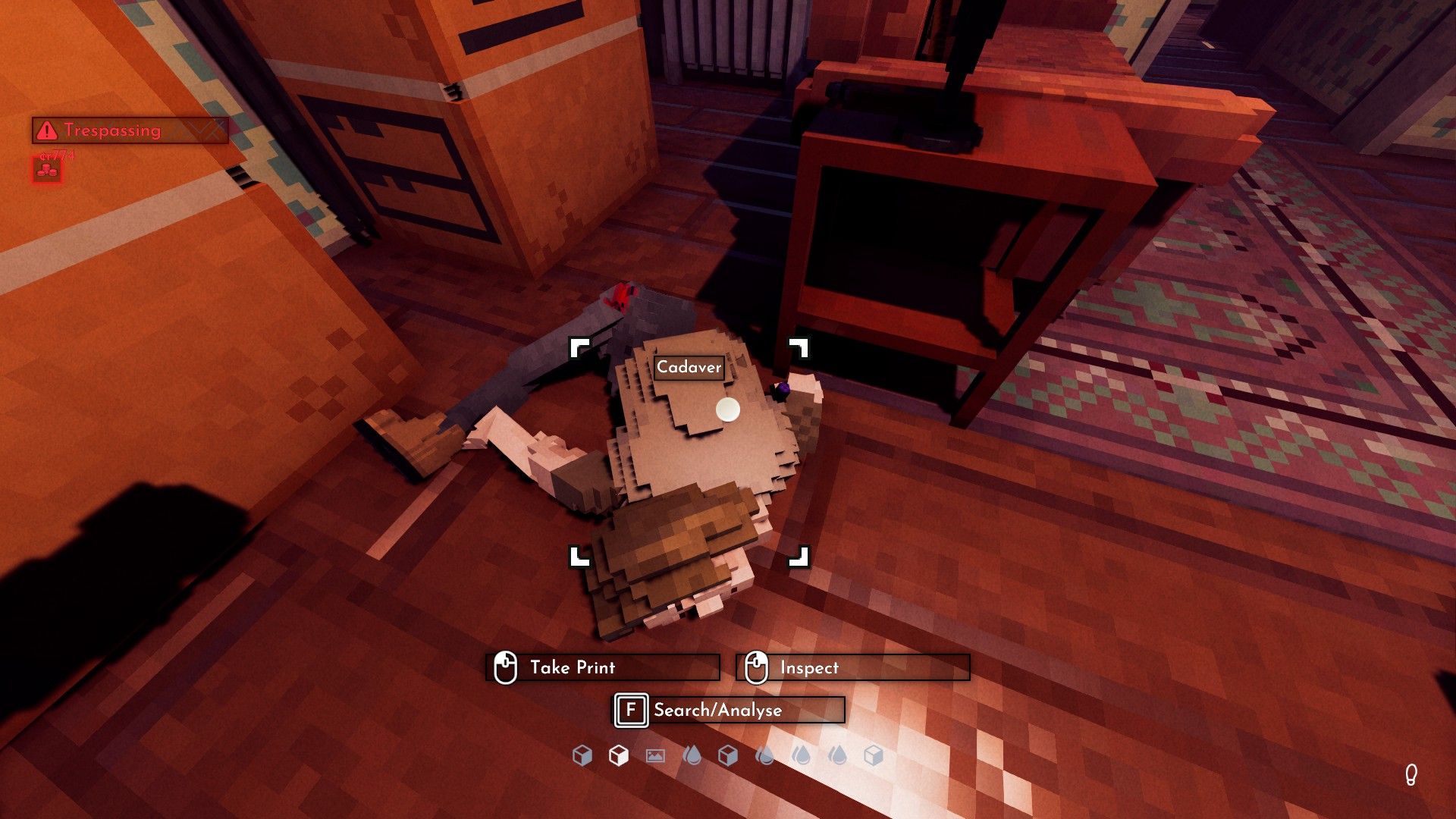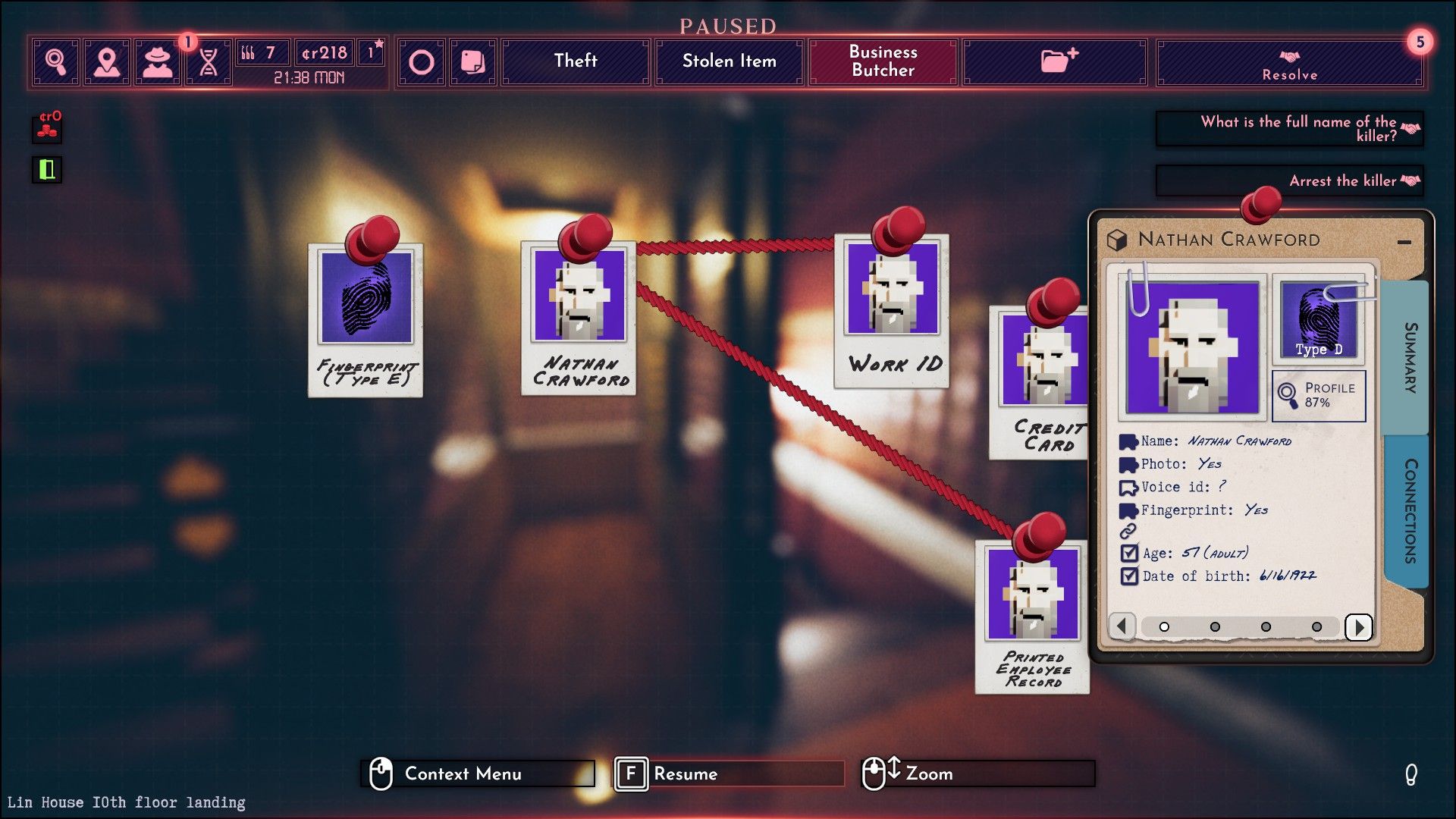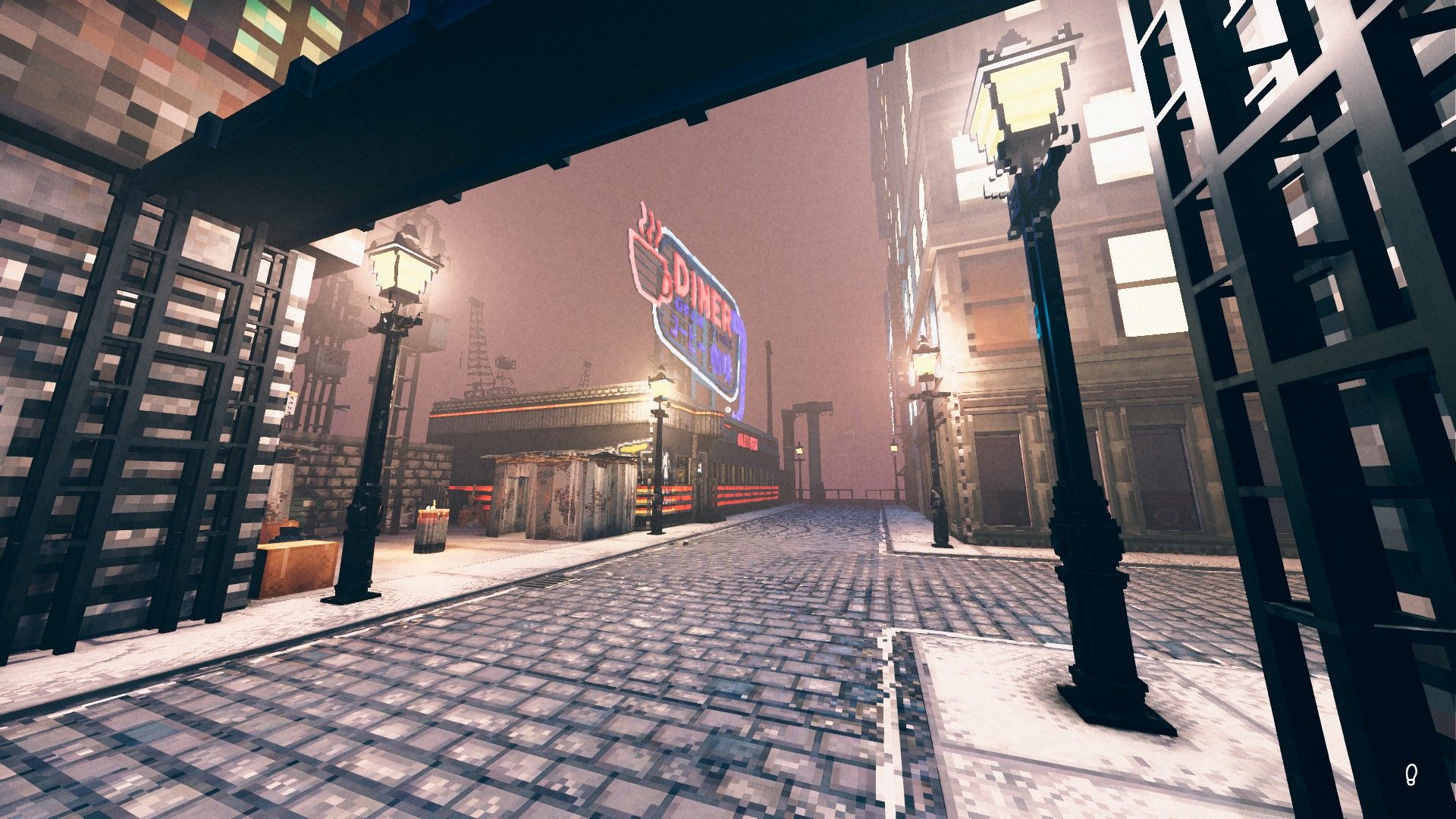Shadows of Doubt: A Murder in Capitalist Paradise
Will you catch the criminals... or become one?

L.A. Noire was an interesting failure. While far from the first game to put the player in control of a detective, it was one of the few to expand the detective game beyond the limits of old-school adventure mechanics. Yet it seemed like the developers lacked confidence in their concept, choosing to bury the investigation and interrogation aspects under generic cover shooter set pieces.
While perhaps disappointing, the notion of detective games stuck with me after L.A. Noire. I made reference to this in an article on epistolary storytelling, where I wrote about a hypothetical video game in which the player controls an investigator and has to assemble the story entirely on their own. I ended that piece by suggesting that this was a pipe dream.
Little did I know, as I was writing it, someone at ColePowered Games was actually creating that very game.
This is Shadows of Doubt. You are the detective.

The year is 1979, but the world has taken a much different path to this point. With the Western world falling into ruin, a monolithic soda company unifies the remaining nations under the banner of United Atlantic States. The UAS is a body in which money and power are absolutely supreme and justice is only for those who can afford it.
Suddenly, a killer strikes. The Enforcers - security forces of the future - have little interest in solving such crimes, dedicating most of their resources to protecting their clients. The task of catching the perpetrator before he kills again falls to individual freelancers. With a little luck, you'll be the one to get the glory and the bounty.
This is the world of Shadows of Doubt. It is both neo-noir and retro sci-fi - a vintage '80s dystopia, one of the many descendants of Blade Runner. You are a private investigator, but in the nearly lawless cities of the UAS, your job is to solve serious crimes. Crack enough cases, and you'll get a chance to retire to the happy hunting grounds of the well-connected.

The goal is to find enough evidence to finger the killer. In addition to figuring out the perp's identity, you'll need to place them at the scene of the crime using fingerprints, security stills, or some other piece of physical evidence. Ideally, you'll also have the murder weapon - and, if possible, the murderer in custody.
There is one catch: You aren't with the police, and thus no one has any reason to talk to you. But in the fine tradition of the hardboiled mystery, not being a cop means that you don't have to worry about things like protocol or rights. That leaves you free to break into people's apartments, crack safes, sabotage security systems, hack computers, bribe witnesses, dig through garbage, and occasionally knock someone's lights out.
But a PI doesn't live on murders alone. In between slayings, you'll be able to pick up jobs to make money that you'll need for your cases. These jobs are found on message boards in various shady places and may entail solving lesser crimes or even committing a few on your own. Of course, given your skills with breaking and entering, you also have the option to forego these side missions and simply be a part-time burglar.
As you may have figured out, Shadows of Doubt dwells in a morally gray space. It's just that, unlike a lot of games that aspire to "complexity," it doesn't shove it down the player's throat. This just happens to be a world in which you can steal money from a murder victim's wallet, and use it to pay bribes to solve that murder. The game doesn't call attention to it, that's just business as usual in this reality.

As with any sandbox game, Shadows of Doubt has a bit of a harsh difficulty curve. The developers are kind enough to provide a custom tutorial mission - "The Dead of Night" - which walks the player through the basics of navigation and evidence collection while also providing a distinct set of leads. However, once you're finished with that and into the more simulationist main game, it is very much sink or swim.
Even so, gathering evidence - the heart of the game - is still intuitive and gives a real sense of putting the story together on your own. Find a victim's name and you can use a directory to get his address. Once you're in the victim's apartment, you can find leads going off in many different directions. It might be a receipt that points to a clandestine meeting where you can use security footage to locate a suspect, an access code to get into his work computer, or an unidentified fingerprint in a suspicious location. In classic murder mystery fashion, you'll slowly assemble and then eliminate suspects until you're ready to turn in the real killer.
At any time, the player can access a pin board that displays all potential clues collected for any particular case. The player can then extract useful information (such as phone numbers and addresses) or discard anything that's not useful. The game automatically draws connections between certain related pieces of information, but the most important links are for the player to find.

One of the major selling points of Shadows of Doubt is the level of detail in the game's procedurally generated worlds. There's certainly a lot here to make the world feel alive. Citizens who aren't persons of interest still have their own lives, jobs, and relationships, and you'll see them going about their mundane business as you hunt for clues. This isn't just texture, either. Figure out someone's work schedule and you can ransack their apartment without risk of getting caught... unless the target has a significant other on a different schedule.
Shadows of Doubt is a game that you could easily play for hundreds of hours, and that level of commitment is probably what it's going to take to get everything out of the experience. I personally would have liked to see more custom cases like "The Dead of Night," just because they're better suited for shorter, more casual play sessions. Maybe we'll see something like that once Shadows of Doubt is out of Early Access.
Then again, the advantage of the open-world model is that it can - and will - surprise you. On my final attempt, I was trying to locate the target for a breaking and entering job when I heard gunshots from a nearby apartment. Someone had been shot to death just meters away. After incapacitating the fleeing killer, I realized that not only had I just personally witnessed the next murder, but the victim was the owner of the apartment I was supposed to burgle.
It's moments like that which are going to give Shadows of Doubt a reputation.
In sum
Shadows of Doubt is a sandbox detective game that tasks the player with solving murders while also managing their day-to-day life. It offers exceptional replay value and a unique gameplay experience, but it will take some time to get used to the gameplay loop.
Shadows of Doubt is available for PC via Steam. A key was provided by the developer.
